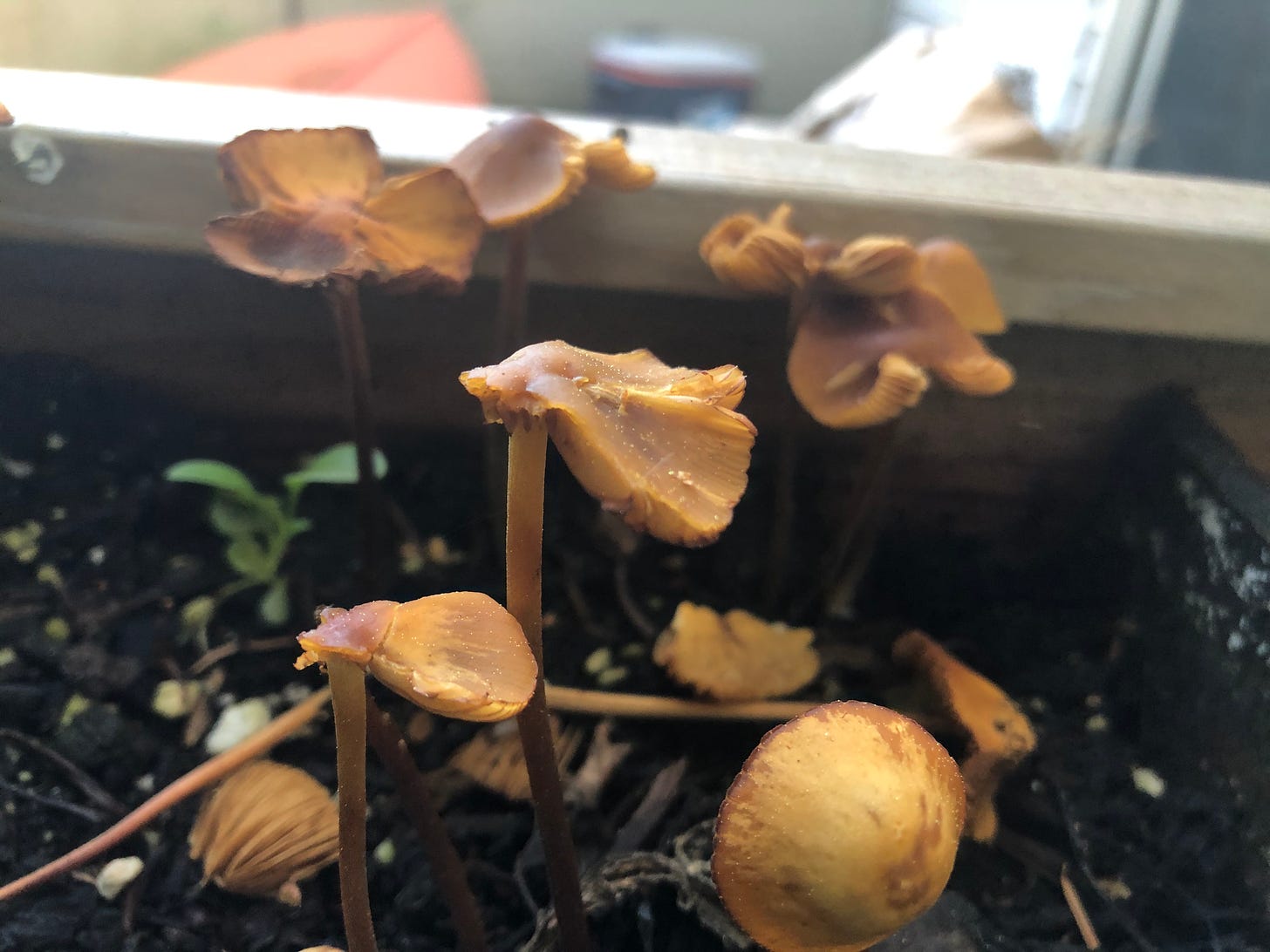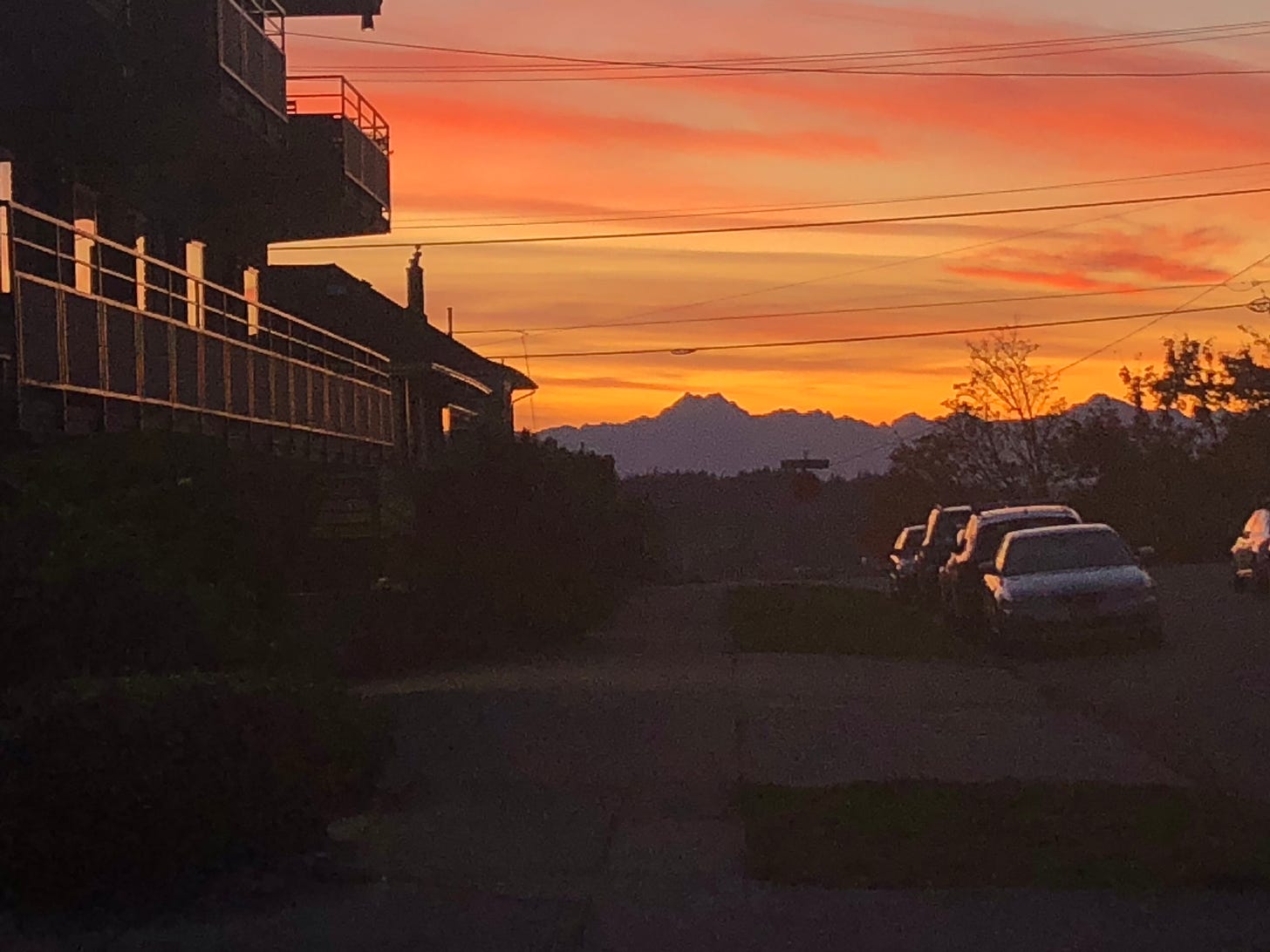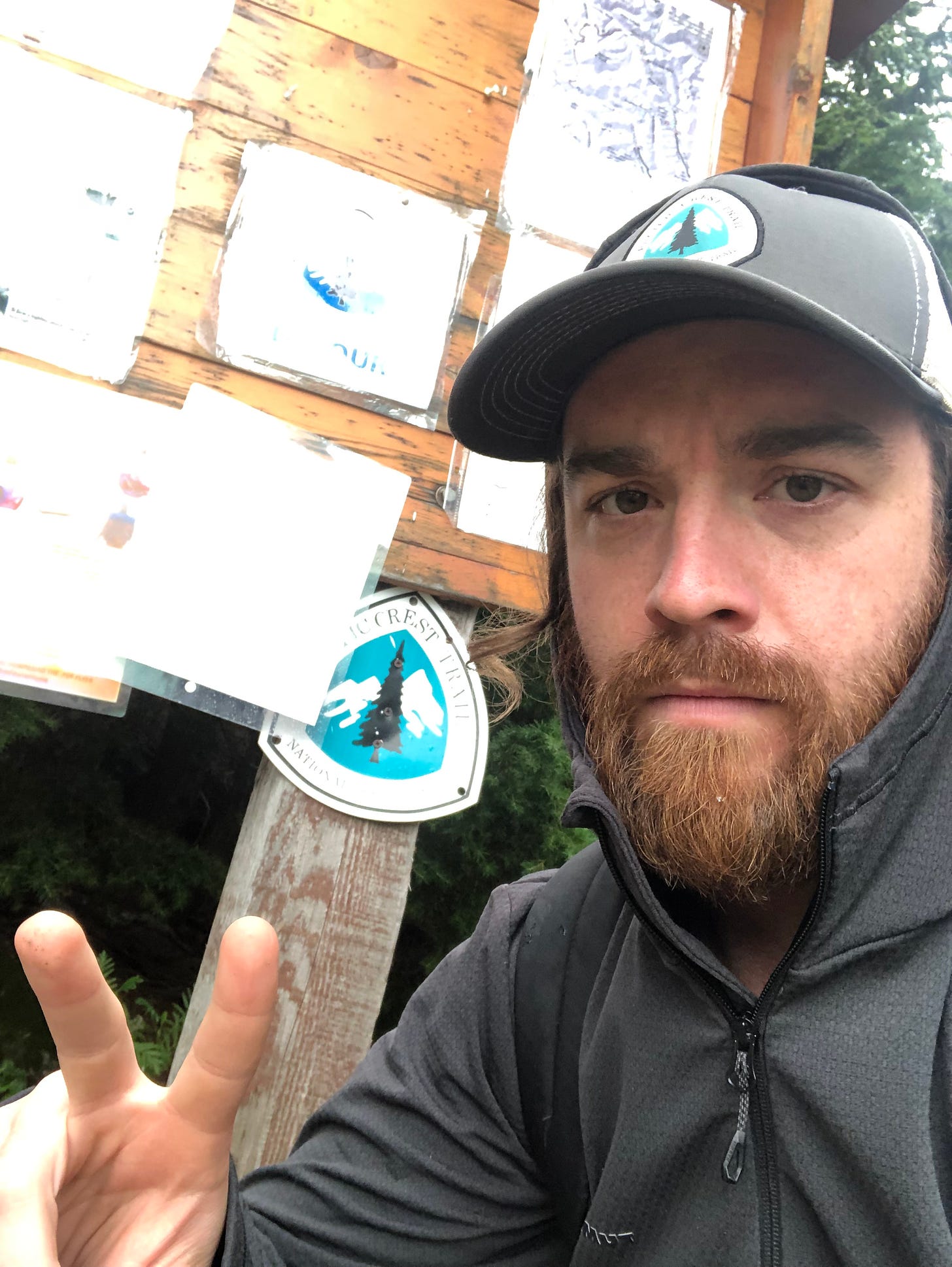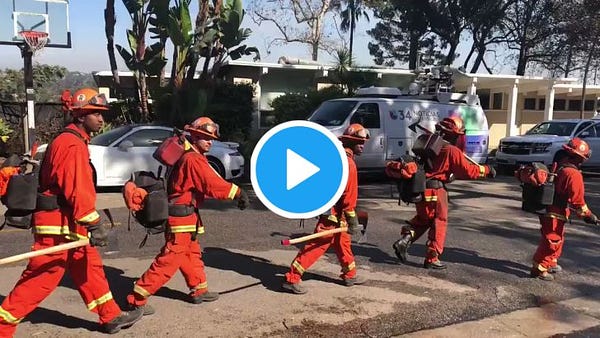Tabs Open #31: You Don’t Go Wheeling Refrigerators Out Of Stores Every Day

What grows well does not always grow pretty. I remembered this over the weekend when I went out to my raised bed to reinvigorate the soil and plant the fireweed seeds I bought by mail from Alaska.
I have written about fireweed in this newsletter before; for my money it’s one of the most aesthetically pleasing plants in the whole northwest. Those pink flowers won’t emerge until next summer, though, and even that is if I’m lucky. No, what I mean is that in the bed there was already quite an impressive array of mushrooms. How long they’ve been there I can’t say; the only time I’ve looked out there since August was to trim most of the viable sage and mint out of it to make tea.

The mushrooms are not what anyone would call beautiful. They are brown and stumpy and crooked, mostly. But they have built out quite a home for themselves, thriving on the rot of my spring attempt at growing a spray of forget-me-nots on the edge of the bed.
What grows well does not always grow pretty. So it is for garden beds, so it is for social movements. If you’ve been following the news (or if you saw Chance the Rapper on Saturday Night Live this weekend) you might have heard that the Chicago teachers have been out on strike, fighting a “progressive” city administration that lavishes funds on developers but can’t seem to shrink class sizes or pay teachers or make sure kids have their needs met. Tale as old as time. And strike fights are always ugly. But like the mushrooms strikes can only grow where there is rot to feed on. Make no mistake: Chicago has it in spades.
To grow something in the dark, as mushrooms grow, is hard. In a sense I’m engaged in quite literally that as I co-teach a socialist night school class here in Seattle. One of the readings we covered in our session on Monday was Peter Camejo’s “Liberalism, Ultra-Leftism, or Mass Action,” a 1970 essay about the Left’s various approaches to interfering in the Vietnam War. Part of his analysis—a part that feels particularly prescient, as teachers discover their power in Chicago and elsewhere across the country—is as follows:
You see, if you walk into a store that’s selling refrigerators, there’s nobody in that store to stop you from wheeling out a refrigerator. How many guards do they have at the door? Probably zero. They have some salesman who walks up to you. It wouldn’t take much to get him out of the way. You could wheel out four or five of them.
Now, the reason you don’t go wheeling refrigerators out of stores every day of the week is because there’s a certain power ensuring that that refrigerator stays inside the store unless they get money for it.
There are things like the police, the courts, and jails behind it. But this power isn’t apparent when you look at the refrigerator and at the little salesman saying, “You’d better not take that.”
In a similar way, when a union bureaucrat gets up at a rally and says, “You’d better stop the war,” it isn’t some helpless little guy on the street talking. There’s a lot of power behind that plea.
If you don’t understand the relationships which exist in this society, because they’re not apparent at first sight, you can make some tragic errors.
Those relationships are starting to become more apparent, by the way. People are beginning to recognize the power they have—not as it is bestowed upon them by someone else, but what they have when they’re all working together. Camejo continues:
The working class and the oppressed nationalities are mass social layers, and they can only realize their potential power when they organize as a massive social force. The ruling class can deal with any one individual or any small group; it’s only masses that can stand in their way. So the potential power of the working class to stop the war is a big threat.
By the way it’s my birthday today. Twenty-nine big ones. But you can’t ask for class-consciousness or revolution as a gift. You have to build it.

In case you needed some motivation to get busy with that, here’s a line of firefighters confidently walking toward the gaping maw of Hell. These particular firefighters are incarcerated in California, getting paid approximately $1.00 per hour to go put their lungs and eyes and bodies on the line to stop the wildfires that are ravaging the state thanks to capitalist malfeasance both long-term and short-.
I promise not to spend the rest of this issue talking about gloomy shit.
I also don’t want to make this a clip show of stuff the newsletter has already covered (strikes, Camejo, a general looming sense of dread), but I had the privilege of seeing Tyler Childers play in Seattle over the weekend. I am not from Appalachia but the heart-rending melancholy of his music about the place really does something to me—some experiences are universal no matter where they’re specifically located, it turns out. Please enjoy:
He’s got some much more upbeat down-home riffs that you might also enjoy. But it’s the slow, hurtin’ ones that get to me the most.
I want to say one last thing about the mushrooms I found growing in my garden bed before I go. At the risk of drawing too many conclusions from a 20-minute stint with my hands in the dirt, I was reminded of the necessity of laying the groundwork for a healthy winter. For the last few years I’ve taken the stretch of time from Halloween to New Years off of Twitter and Facebook, a way to sort of soak my brain in cold water to get the stains out. The first few weeks are always embarrassingly difficult and I find myself desperately refreshing my emails, even, as a way to satisfy my little rat brain’s need for the hit of dopamine that comes with every notification. But eventually I get in a rhythm and stop drafting tweets in my head every time something funny or mildly interesting happens to me and I start engaging with my world much more fully.
This is also always a period of time when I get the most reading and writing done—surely there’s no correlation there. On that note I should tell you that I’ve spent the last 3+ years writing a book about my experience hiking the Pacific Crest Trail in 2016, and I hope to finally get the proposal out (once I’m happy with it) during this time. If I put that out in the universe in writing I will be forced to stick to it. So stay tuned—if I ever get news about that process, good or bad, I promise to share and reflect on it here.

29—sort of a weird number, not one I’ve ever really thought about being one way or another. I hope it holds as much life in it as 28 did. Thank you all for being here, sincerely: I think writing this newsletter was one of the best & healthiest things I did with myself all year.
I’ll see you next week.
-Chuck







